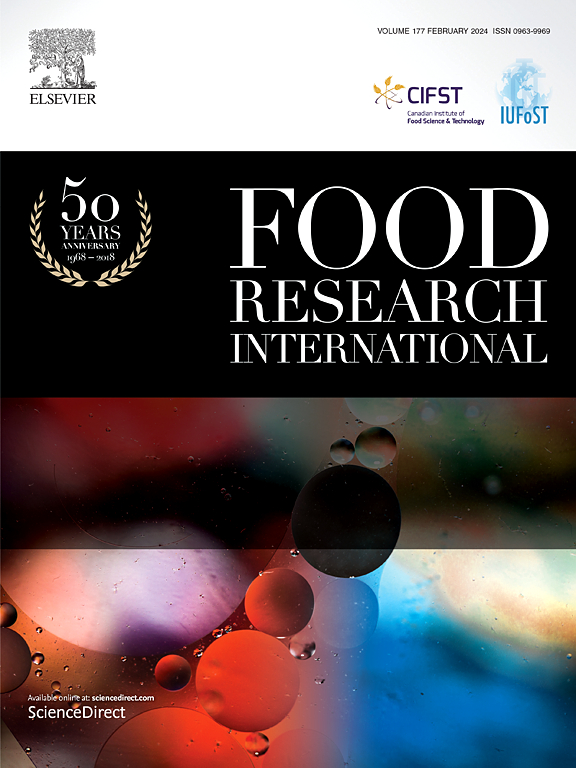Eurotium Cristatum fermented instant dark tea prevents obesity and promotes adipose thermogenesis via modulating the gut microbiota
IF 7
1区 农林科学
Q1 FOOD SCIENCE & TECHNOLOGY
引用次数: 0
Abstract
In this study, we produced instant dark tea (IDT) by liquid-state fermentation of Ziyang selenium-enriched summer-autumn tea leaves utilizing Eurotium cristatum. Then, the novel mechanism of IDT against obesity was investigated. Our results for the first time revealed that IDT could alleviate obesity by regulating the gut microbiota and promoting adipose thermogenesis. Notably, IDT significantly promoted the proliferation of probiotics such as Lactobacillus, Bifidobacterium and Akkermansia, and subsequently elevated the production of microbial metabolites, including succinate and short-chain fatty acids (SCFAs). Furthermore, IDT promoted thermogenic capacity of brown adipose tissue (BAT) and browning of inguinal white adipose tissue (iWAT) in obese mice, which was manifested by the increased expression of thermogenesis markers UCP1, PGC1α and CIDEA in BAT and iWAT. Interestingly, antibiotic treatment significantly eliminated the adipose thermogenesis effect of IDT. Taken together, our study produced IDT by Eurotium cristatum fermentation, and demonstrated its great potential in preventing obesity and metabolic complications via gut microbiota-derived adipose thermogenesis.

Eurotium Cristatum发酵速溶黑茶通过调节肠道微生物群来预防肥胖和促进脂肪产热
本研究以紫阳富硒夏秋茶为原料,利用冠状Eurotium cristatum液相发酵生产速溶黑茶(IDT)。在此基础上,探讨了IDT抗肥胖的新机制。我们的研究结果首次揭示了IDT可以通过调节肠道微生物群和促进脂肪产热来减轻肥胖。值得注意的是,IDT显著促进了乳酸杆菌、双歧杆菌和Akkermansia等益生菌的增殖,并随后提高了琥珀酸盐和短链脂肪酸(SCFAs)等微生物代谢物的产量。此外,IDT提高了肥胖小鼠棕色脂肪组织(BAT)的产热能力和腹沟白色脂肪组织(iWAT)的褐变,表现为BAT和iWAT中产热标志物UCP1、PGC1α和CIDEA的表达增加。有趣的是,抗生素治疗显著消除了IDT的脂肪产热作用。综上所述,我们的研究通过冠状Eurotium cristatum发酵产生了IDT,并证明了其通过肠道微生物源性脂肪产热在预防肥胖和代谢并发症方面的巨大潜力。
本文章由计算机程序翻译,如有差异,请以英文原文为准。
求助全文
约1分钟内获得全文
求助全文
来源期刊

Food Research International
工程技术-食品科技
CiteScore
12.50
自引率
7.40%
发文量
1183
审稿时长
79 days
期刊介绍:
Food Research International serves as a rapid dissemination platform for significant and impactful research in food science, technology, engineering, and nutrition. The journal focuses on publishing novel, high-quality, and high-impact review papers, original research papers, and letters to the editors across various disciplines in the science and technology of food. Additionally, it follows a policy of publishing special issues on topical and emergent subjects in food research or related areas. Selected, peer-reviewed papers from scientific meetings, workshops, and conferences on the science, technology, and engineering of foods are also featured in special issues.
 求助内容:
求助内容: 应助结果提醒方式:
应助结果提醒方式:


